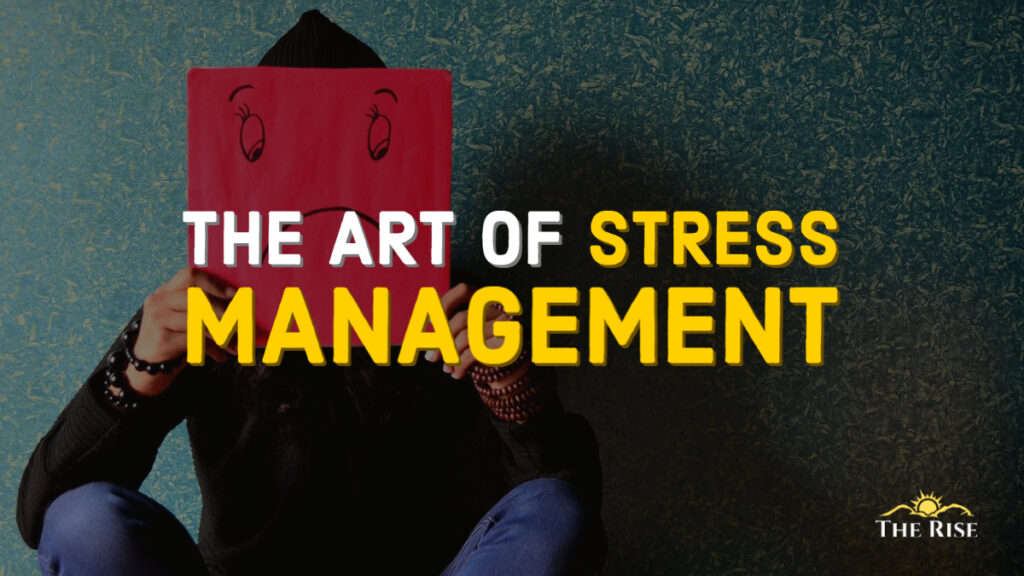The response to stressful stimuli is essentially psychological. Handling stress involves changing the way we think. To overcome stress, we need to peep into our minds and untangle some prejudices and fears.
Most of us associate stress with tension, pressure, emergency, action and adversity. The reason for such an association is due to our interpretation of stress. Most of us derive the meaning of “stress” from its colloquial use – ”I am stressed out” ; ”I’ve had a stressful day” ; ”I can’t handle the stress ” ; ”The stress of travelling is too much”. Most of these expressions convey the negative meaning of stress. We also use certain expressions with positive meaning of stress like, ”To lay stress on ” ; ”The teacher stressed upon learning the basics “ ; ”Stress-as a physical force that moves things around”, and so on. When under stress, we ignore the positive potential of stress and think only about its negative effects. This psychological response to stress is all that goes around in our minds. Most of the times, it is premeditated, like a shriek at the sight of a flying cockroach or trembling with fear at the thought of an injection. These are premeditated responses to what our body has identified as stress. Thus, the response to stressful stimuli is essentially psychological. Hence, handling stress involves changing the way we think. This will change the way we react. To overcome stress, we need to peep into our minds and untangle some prejudices and fears.
The Thinking Mind
What distinguishes us from the rest of the animal kingdom is our thinking mind. Our thought process is a very powerful tool that we use to reason out,to analyse, to categorise, and to store information. This process becomes more refined as we become adults.
By thinking in a logical fashion, we can control most of our reactions. This is what a cultured, civilised, and debonair adult is expected to do always — give the ‘most appropriate’ response. This code of conduct is easy to follow in controlled situations. However, when one is under stress, the natural impulses suppressed by the ‘code of appropriateness’ begin surfacing. The challenge in stress management is to control our so-called ‘inappropriate’ responses.
“Each one of us is God. Each of us knows all. We only need to open our minds to hear our own wisdom.”
The Mature Mind
Maturity comes with age; more appropriately, with experience. In our childhood, we observe things and make impressions. In our youth, we make some mistakes and learn from them. We start thinking about our impressions and observations and relate them with our practical experience. This process goes up to a point when we start using our impressions and our experiences, for making personal judgements. That is how we mature.
Maturity of thought does not come at a certain age. It comes with the application of the mind – applying past experiences to the present situation to ensure a satisfactory future outcome. Maturity of thoughts calms the mind down. Maturity keeps us calm through adversity. A mature adult learns to handle situations better. At that level, stress does not disturb the thinking process easily. Maturity brings simplicity in thoughts and action.
May Like: Spirituality
How to Control Anger?
- Avoid being provoked. We get angry when we are provoked. If you don’t get provoked, you will not lose your temper. When someone instigates you, try the Gandhian way. Count numbers in your head. Breathe deeply while counting and relax your posture. People will think twice before bothering you if they knew you don’t get provoked easily!
- Avoid an angry reaction. When we are provoked or stressed out, our first reaction is anger. Learn to control the angry outburst. You cannot retaliate in anger and win an argument.
- Be patient. It requires a lot of patience to control anger, and not get irritated and. You cannot shout at people and convince your point of view. One has to be patient to convince others.
Disclaimer: The views expressed in this article are of the author solely. TheRise.co.in neither endorses nor is responsible for them.
About the author
Rohit Yadav is an Assistant Professor at SBM, NMIMS, Mumbai.








